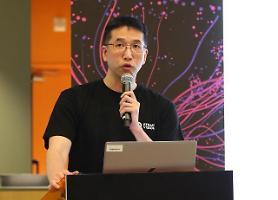
[Courtesy of the Ministry of Trade, Industry and Energy]
The current law does not allow autonomous commercial cargo transport services between different cities and provinces. The autonomous solution called "Mars Pilot" was approved for inter-city commercial cargo services by the Ministry of Trade, Industry and Energy in December 2022 through a regulatory sandbox. The solution can make self-driving trucks slow down or evade an obstacle ahead. In case of an emergency, the autonomous system will notify its driver to take control.
The industry ministry said in a statement that Mars Pilot's efficacy and safety will be tested through a demonstration using 14 cargo trucks. Starting on March 16, the self-driving system will be demonstrated only on selected arterial roads for two years. If the demonstration is found to be successful, the ministry will officially commercialize the self-driving truck solution.
"We are trying out the self-driving service for cargo trucks for the first time in South Korea through a regulatory sandbox," the ministry's industrial technology convergence policy director Lee Min-woo said in a statement. Lee said the project requires more sophisticated autonomous driving technology since cargo trucks are heavier than passenger cars.
South Korea has already adopted commercial autonomous passenger vehicles. In December 2022, two self-driving buses were deployed to the 44.8-kilometer return bus route that connects the central city of Sejong to Cheongju some 22.4 kilometers (13.9 miles) north of Sejong, and back. In February 2022, Seoul commercialized an autonomous vehicle-hailing service in its western district by deploying four self-driving vehicles. Self-driving cars can be hailed from any location on the circulation routes using a designated smartphone app.
Copyright ⓒ Aju Press All rights reserved.


![[CES 2026] LG Innotek showcases autonomous driving, EV solutions](https://image.ajunews.com/content/image/2026/01/06/20260106083216631868_278_163.jpg)

